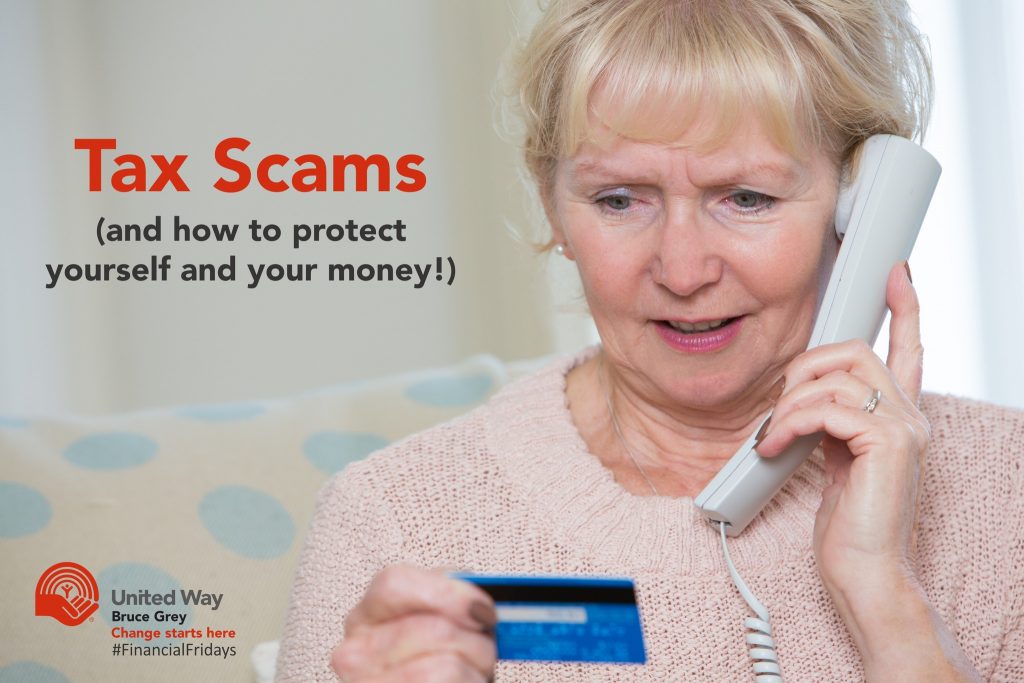#FinancialFridays: Tax Scams (and how to protect yourself and your money)

TOP 3 TAX SCAM ALERTS
Scams and fraudulent schemes are present all year round but most rampant and dangerous during this tax season. The most common tactic scammers employ is the creation of FEAR, anger or excitement! Stirring strong emotions equals fast actions.
These con artists aim for vulnerability and seniors are most often targeted. The primary goals of these scams are your identity or your money.
PHISHING – Cyber criminals can set up a fake Canada Revenue Agency (CRA) website online (or on social media). Watch out for phishing emails or text messages with “malicious links” designed to look like they come from the government. These phishing campaigns or catfish scams are being used to deliver malware and steal your sensitive personal information such as your first name and last name, email address, SIN number, bank account number, credit card number etc. If you suspect you received a cloaked email, do not click any links, do not download any software. Just block or delete immediately!
IDENTITY THEFT – The thieves will target not only individuals but corporations and professionals. The criminals’ goal is to steal client data and taxpayer’s identity so they can file fraudulent tax returns and refunds. Online scams are usually an email from “the government” saying your account is compromised or that someone logged in using your credentials. You then log in to fix the problem – but to a fraud site that skims your password! Now you are truly hacked.
EXTORTION – The scammer will manipulate you to ACT NOW or else something bad will happen. Whether in the form of email, text or CRA telephone scam, the extortionist ultimate goal is to make you PAY and get your money fast. These criminals may ask for payment by wire transfer or gift cards so that it can not be traced. Be warned, the imposters will go to great lengths to appear real or legitimate, for example, they may provide a fake badge or fake name with agent ID number or even have their called ID appear as though it is from Ottawa or CRA unit.
The most common extortion scam is a message from “the government” that you are wanted in connection to a crime. For example, they will demand that you pay taxes you owe or that you have failed to file income taxes for X number of years and they will give you a warning that IF you do not contact the CRA right away, you will face legal consequences or that you can go to jail. The best way to handle these types of scams is by NOT RESPONDING. Instead, make an effort to find the correct contact information for the official government website www.canada.ca or Canada Revenue Agency (CRA) at https://www.canada.ca/en/revenue-agency/corporate/contact-information.html and reach out directly to verify the claim before you make any decisions to act. The CRA toll free number is 1-800-959-8281
Taxpayers, if you suspect that you may be the victim of a scam or fraud or have been tricked into giving personal or financial information, immediately notify your local police service. This is no April fool’s game.
Have you been a victim of scam or fraud? Learn more tips on how to avoid becoming a victim of scams and figure out the next steps to take for your financial well-being by reaching out to Sharon Safra, our Financial Literacy Program Coordinator at advice@unitedwaybg.com or 519-378-4773.

